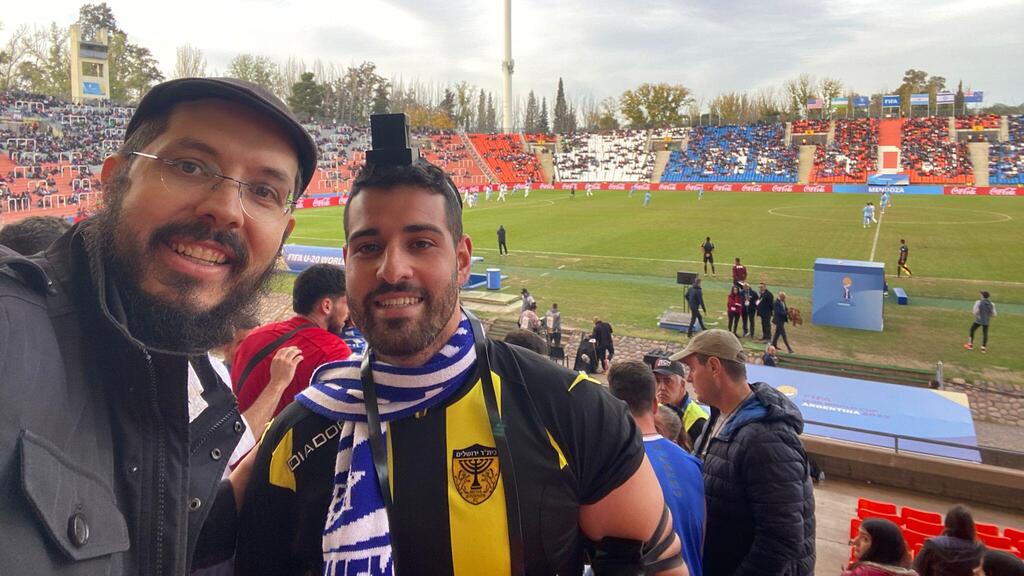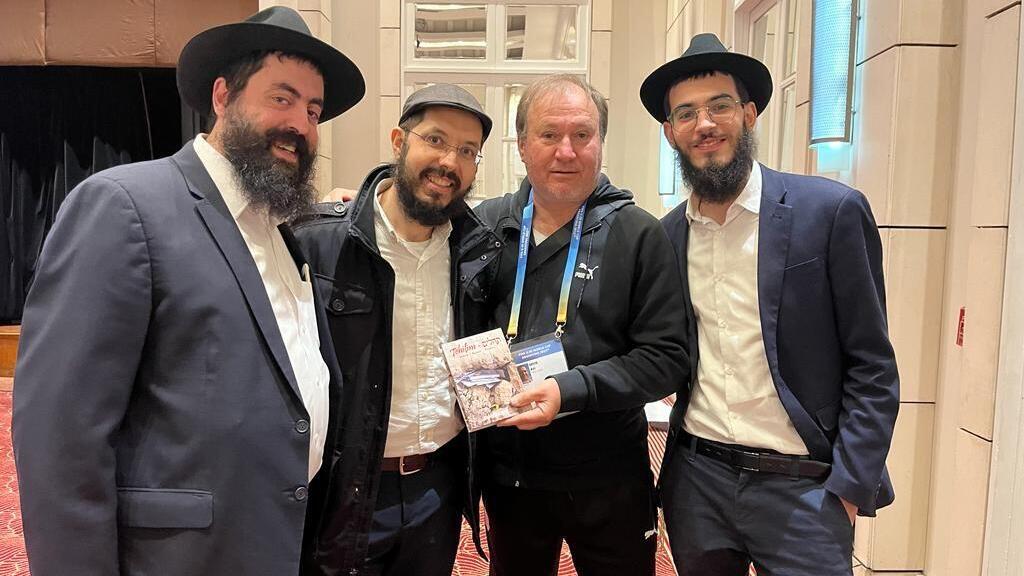Getting your Trinity Audio player ready...
The enormous achievement of the Israeli under-20 soccer team, which qualified for the quarter-finals of the Mondialeto, the biennial international men's FIFA U-20 World Cup, is the center of quite a bit of attention, even outside the world of sports. Apart from the political context that caused the entire tournament to be moved from Indonesia to Argentina, and the desire of the players themselves to enter the registers of the talent scouts in the major teams, there is also a lot of activity in the Jewish-religious area.
Other stories:
Members of Chabad in Argentina have been supporting the youth team – at every game they join the team's supporters in the stands, which also includes Israelis and local Jews. The Chabadniks also make sure to provide the players and team staff with a warm Jewish atmosphere and kosher food.
Rabbi Boaz Klein, the Chabad emissary in the southernmost Jewish point of the world – Bariloche, Argentina, told Ynet upon his departure from the stands after the Israeli team's victory in the round of 16: "We are here because we have a lot of singular pride in the team and we came to cheer them on with our presence in the stands, and also because it was important to us to give the feeling of warmth and home to our team of players and to the members of the delegation, the families and the fans who traveled all the way from Israel to Argentina. Even though they are far from home, to see the victory of the players who gave everything on the field, and to sit in the stands with the Israeli flag around you – it simply warms the heart. In these moments, there is no greater pride than being Jewish and being Israeli."
The emissaries from the central Chabad house in Argentina, led by Rabbi Tzvi Grunblatt, the regional director of Chabad-Lubavitch in Argentina; and the youth management of the Chabad association, led by Rabbi Levi Silberstein, decided to take care of all the team's needs – "physically and spiritually", as they say – of the members of the delegation and the team. That's how they arrived with hundreds of kilograms of fine Argentinian meat to every point throughout the country where the national team players are.
According to Klein, among other things, the messengers organized minyans in the days leading up to the games, as well as prayers on Shabbat and the festival of Shavuot: "We went on a tefillin operation with the families and fans from Argentina's large Jewish community in all the stadiums where the team played. We brought a special edition of the book of Psalms with a dedication from the chief rabbi of Argentina. By the way, we also distributed the books when we arrived at the stadium benches, just before the game began. It was no less moving when the players and the coach came up to us and thanked us, and said how much the support and embrace from the local Jewish community gave them a tremendous boost. Assi Meir, the manager of the team, told us: 'We feel that everyone is part of the historical achievement' – and that is definitely what we felt too: each in his own field, from his point of view, part of the historical achievement."
Rabbi Klein's wife, Rabbanit Fraidy, remains with their six children in Bariloche, where in addition to raising the children she manages the Chabad house in his absence ("My wife is the queen in the house," he smiles). Throughout the game, Rabbi Klein sat happily in the center of the stands.
"Although it was clear to me that they would win, it is difficult to describe the immense joy and excitement that gripped all of us when the game ended," he says. "There was no less great joy and excitement when we heard from the members of the delegation and the players how much strength and help they received from us, which in the end helped bring them to the wonderful achievement."



